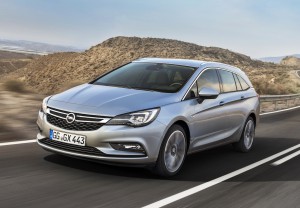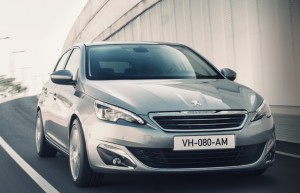
European makers enjoyed another strong sales month in June, except for Great Britain where sales dipped slightly ahead of the Brexit vote.
The overall growth of new car sales in Europe Union, which have been a plus for global automakers this year, continued during June.
Passenger car registrations in the European Union during June have maintained momentum, helping towards a strong first half of 2016, according to the European Automobile Manufacturers Association.
Registrations have increased by 6.9% year over year during the month to 1,459,508 units. Boosting the region towards an increase of 9.4% to 7,842,965 units during the first half of the year, IHS Automotive said in a new report.
Although sales in Great Britain softened ahead of Brexit, the June 23 election in which Britain voted to leave the EU, sending shock waves through markets around the world, the dip wasn’t actually a result of what was then a “potential” departure.
Although it had no direct impact, the decision by the UK voters to leave the EU will eventually become a factor, according to Carlos Da Silva, manager of IHS Automotive European light-vehicle sales forecast.
“We remain relatively confident that this event will not massively alter the course of the European market during 2016,” said Da Silva, noting the key reason for this is because the data refer to registrations, which means that when talking about June registrations we are in fact talking of customer decisions that were taken, on average, three months earlier, as most cars in Europe are built to order rather than purchased from inventory stocks.
“In other words, we are not dramatically changing our views for the European market as a whole in 2016, as we were already factoring in a relative slowdown for the second half of 2016 anyway,” he said.
However, a more visible negative impact is expected during 2017 and 2018, “when registrations actually translate customers’ decisions that will have been taken post-Brexit vote. The Brexit decision is a blow to the region and will affect each and every macro indicator we are tracking.”
Alongside the positive growth rates during the month, the majority of key markets have improved in June.
Despite the ongoing scandal at Volkswagen, Germany, the largest single market in the EU, recorded an 8.3% gain, while France increased by a more moderate 0.8%.
(“New” GM scores small court victory on faulty ignition switches. For more, Click Here.)
However, the most substantial gains from this group have come from the Italian and Spanish markets, which are still in a recovery phase from the downturns caused by the Eurozone crisis, and have increased by 11.9% and 11.2%, respectively. In contrast to this trend, the UK dropped 0.8%. However, this is only the second time in 52 months that the market has recorded a fall as it currently stands at record levels.
Brexit will probably hold back economic growth in countries using the euro, according to the European Central Bank.
Portugal, Ireland and a host of markets in Central Europe are continuing to record improvements on the relatively low base of comparison. One of the exceptions to this group has been Romania, where registrations slumped by 36.7%.
For manufacturers, the results for June were mixed.
Volkswagen Group led the market with a share of 23% in June. However, while its unit sales have improved marginally, by 1.5% to 335,970 units, the fact that the rate of growth is behind the market as a whole has resulted in its share falling by 1.2 percentage points.
(Click Here for details about the possibility that regulators may roll back CAFE mandates.)
It has not been helped by many brands in its line-up which had a weak month – the leading VW brand fell dipped by 0.3%, while SEAT and Porsche slid by 1.2% y/y and 2.4% y/y, respectively. Even its premium Audi brand could only increase by 0.8% y/y, despite the introduction of the latest A4. The wider group performance was helped by the Skoda brand which has grown by 9.2%. Despite the weak performance in June, the automaker has maintained a growth rate in the YTD of 4.5%.
French carmakers had varied results.
The Renault Group surged past Groupe PSA to become the second largest automaker this month, thanks in part to a gain of 20.2% to 178,368 units. This has been underpinned by new model introductions by its namesake brand, which contributed to a 21.8% improvement.
It has also been lifted by a range of competitive financing deals and incentives on an individual market basis. PSA, on the other hand, struggled with a slide of 0.6% y/y to 148,070 units, as it lacked the many new introductions that Renault Group has undertaken during the past 18 months.
While Ford and Nissan suffered declines and Opel Group was flat, other manufactures, including Fiat Chrysler Automobiles which saw sales increase by 13.2% as its own model launch strategy paid dividends: Fiat’s Tipo and 500X, Jeep’s Renegade and now Alfa Romeo’s Giulia helped with the uplift.
(To see more about the feds probing fraud at Fiat Chrysler, Click Here.)
Premium carmakers have also put in robust performances. For example, the BMW Group has increased by 16.3%, while Daimler gained by a comparable 16.5%. Furthermore, Volvo Group and Jaguar Land Rover increased by 12.5% and 12.8%, respectively, and both have new models in the pipeline.

